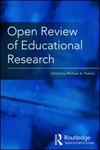In conversation with Mark Olssen: on Foucault with Marx and Hegel
Q1 Arts and Humanities
引用次数: 2
Abstract
ABSTRACT It is challenging to define who Michel Foucault was, whether he was a theorist, a philosopher, a historian, or a critic. In many of his books, and essays, Foucault denied being a philosopher or a theorist, nor did he want to be called a writer or a prophet. He described himself as an experimenter by saying that his work simply consists of ‘philosophical fragments put to work in a historical field of problems’. Like Ball [2013. Foucault, power, and education. New York: Routledge, p. 2], we believe that Foucault tried hard not to be ‘a something’, opening up opportunities to develop and practise theory. Emeritus Professor Mark Olssen has written widely on Foucault’s theoretical underpinnings and legacy. This conversation aims to revisit Olssen’s work, as well as Foucault’s own writings in order to engage with Foucault’s philosophical background and the methods he developed. By exploring Foucault’s theoretical and methodological approaches, the conversation situates his work within broader traditions of social theory, particularly within the works of Marx and Hegel. Our conversation starts by discussing Foucault’s relationship with Marx and Hegel and moves towards his approach to history and his wider contribution to poststructuralist school of thought.与马克·奥尔森对话——论福柯与马克思、黑格尔
摘要:无论是理论家、哲学家、历史学家还是评论家,如何界定米歇尔·福柯都是一项挑战。在他的许多书和文章中,福柯否认自己是哲学家或理论家,也不想被称为作家或先知。他把自己描述为一名实验者,说他的作品只是由“在历史问题领域中发挥作用的哲学片段”组成。Like Ball[2013。福柯、权力和教育。纽约:劳特利奇,第2页],我们认为福柯努力不做“某样东西”,为发展和实践理论开辟了机会。名誉教授马克·奥尔森撰写了大量关于福柯理论基础和遗产的文章。本次对话旨在重新审视奥尔森的作品,以及福柯自己的作品,以了解福柯的哲学背景和他发展的方法。通过探索福柯的理论和方法论方法,对话将他的作品置于更广泛的社会理论传统中,特别是马克思和黑格尔的作品中。我们的对话从讨论福柯与马克思和黑格尔的关系开始,并转向他的历史方法和他对后结构主义学派的更广泛贡献。
本文章由计算机程序翻译,如有差异,请以英文原文为准。
求助全文
约1分钟内获得全文
求助全文
来源期刊

Open Review of Educational Research
EDUCATION & EDUCATIONAL RESEARCH-
CiteScore
2.60
自引率
0.00%
发文量
0
审稿时长
22 weeks
 求助内容:
求助内容: 应助结果提醒方式:
应助结果提醒方式:


